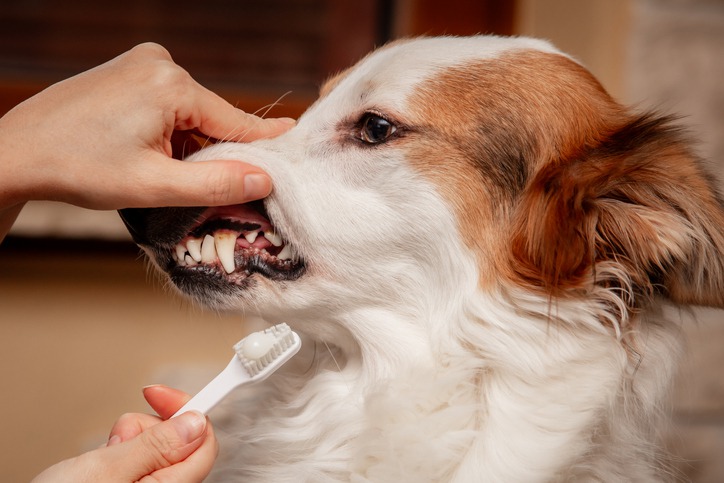Early warning signs in pets can include changes in appetite, water consumption, or bathroom habits, indicating potential problems. Lethargy, unexplained weight loss or gain, and difficulty moving could signal internal or joint issues. Look for skin irritations, coat changes, or excessive scratching, which may denote allergies or parasites.
Vomiting, diarrhea, or changes in behavior like aggression or withdrawal can also be evidence of underlying health issues. It’s important to note any unusual symptoms and consult a veterinarian promptly, as early intervention can drastically improve outcomes. Regular check-ups are vital to maintain your pet’s health and address concerns swiftly.
Common Health Issues in Pets
1. Skin Problems
Skin problems in pets are widespread, ranging from minor irritations to severe infections. Common signs include itching, redness, hair loss, and rashes, which can often go unnoticed without regular skin checks. Early detection is crucial for effective treatment and preventing further complications. Pet owners should routinely examine their pets for any abnormalities and consult a veterinarian if issues arise. Maintaining a clean environment, proper grooming, and a balanced diet can help mitigate skin problems. Regular veterinary visits are essential for overall skin health and early intervention if problems develop.
Some signs may include:
-
Excessive licking or scratching.
-
Dry, flaky patches or bald spots.
-
Bumps, sores, or scabs.
Basic remedies to manage these symptoms include regular grooming to reduce irritants and using mild shampoos that are safe for pets. If the condition persists or worsens, it’s advisable to consult a vet for further evaluation.
2. Digestive Issues
Digestive problems often present as vomiting, diarrhea, and loss of appetite, with common culprits including dietary indiscretions, underlying health conditions, and stress. Dietary indiscretions like consuming spoiled or fatty foods can irritate the digestive tract, leading to discomfort. Chronic health issues such as irritable bowel syndrome, Crohn’s disease, or infections can disrupt normal function. Stress exacerbates symptoms by influencing gut-brain interactions. Identifying root causes is crucial for effective management. Proper hydration, a balanced diet, and stress-reducing techniques can alleviate these symptoms and improve overall digestive health.
Key symptoms to watch for include:
-
Changes in eating habits.
-
Excessive drooling.
-
Abdominal pain or swelling.
If you observe any of these signs, it’s crucial to monitor your pet’s condition closely. Temporarily providing bland diets and ensuring they stay hydrated can help manage minor issues. However, if symptoms persist, seeking veterinary advice is essential to rule out more severe conditions.
3. Respiratory Issues
Respiratory issues in pets are concerning since they directly impact their breathing ability. Watch for signs like coughing, sneezing, wheezing, and labored breathing, as these may indicate underlying health problems like infections, allergies, or more severe conditions such as asthma or pneumonia. Timely intervention is crucial; thus, seeking veterinary attention promptly can prevent complications. Proper diagnosis and treatment ensure your pet’s well-being and quality of life. Never ignore these symptoms, as early detection and care are key in managing respiratory issues effectively.
Look out for:
-
Persistent coughing or wheezing.
-
Nasal discharge or congestion.
-
Rapid or labored breathing.
Environmental factors like dust, allergens, and smoke can exacerbate these symptoms. Providing a clean, calm space for your pet can help alleviate discomfort. Still, if the problem continues, a professional evaluation is necessary.
When to Seek Professional Help
If your pet’s symptoms persist or worsen, scheduling a dog checkup in Benton, AR can ensure a thorough health evaluation. Regular veterinary visits are essential for catching issues early and preventing more severe health problems. A vet can provide tailored advice and treatments to manage your pet’s specific health needs effectively.
Preventive Measures and Routine Care
Maintaining a consistent vet schedule is vital for your pet’s health. Routine care helps in early detection of potential health issues, keeping your pet healthy and happy.
For young pets, having regular visits to a kitten and puppy vet builds a strong foundation for their health and development. These visits typically include vaccinations, growth monitoring, and advice on nutrition and training, ensuring that your young pet gets a good start in life.
Utilizing Advanced Diagnostic Tools
In some cases, common signs and symptoms might not be enough to diagnose a health problem accurately. This is where advanced diagnostic tools come into play. Veterinary diagnostic laboratories provide specialized services to pinpoint the exact issue affecting your pet.
When facing unidentifiable health issues, consulting a veterinary diagnostic laboratory can be invaluable. These facilities offer a range of tests, from blood work to imaging, that can provide detailed insights into your pet’s health. Accurate diagnoses are essential for effective treatment plans.
Final Thoughts
Maintaining your pet’s health involves vigilance for signs of illness. Common issues include ear infections, dental disease, obesity, parasitic infestations, and urinary tract problems. Early detection is crucial. Notice changes in behavior, appetite, and waste habits. Regular check-ups with a veterinarian are vital, as preventative care can avert critical conditions. Vaccinations, flea control, and dental care are preventative measures. Pets hide discomfort well, so close observation is keyed. If symptoms arise, promptly consulting a vet can prevent complications. Always provide a well-balanced diet, sufficient exercise, and affection to support your pet’s well-being. Responsible pet ownership entails safeguarding their health.



